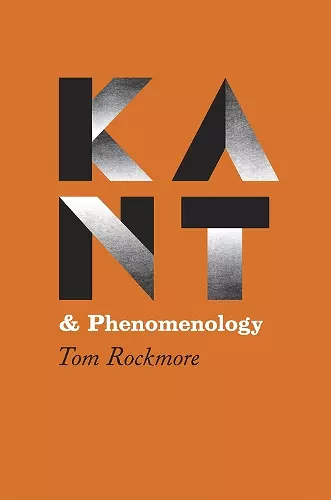Kant and Phenomenology
Format:Paperback
Publisher:The University of Chicago Press
Published:14th Dec '21
Should be back in stock very soon

Phenomenology, together with Marxism, pragmatism, and analytic philosophy, dominated philosophy in the twentieth century—and Edmund Husserl is usually thought to have been the first to develop the concept. His views influenced a variety of important later thinkers, such as Heidegger and Merleau-Ponty, who eventually turned phenomenology away from questions of knowledge. But here Tom Rockmore argues for a return to phenomenology’s origins in epistemology, and he does so by locating its roots in the work of Immanuel Kant.
Kant and Phenomenology traces the formulation of Kant’s phenomenological approach back to the second edition of Kant’s Critique of Pure Reason. In response to various criticisms of the first edition, Kant more forcefully put forth a constructivist theory of knowledge. This shift in Kant’s thinking challenged the representational approach to epistemology, and it is this turn, Rockmore contends, that makes Kant the first great phenomenologist. He then follows this phenomenological line through the work of Kant’s idealist successors, Fichte and Hegel. Steeped in the sources and literature it examines, Kant and Phenomenology persuasively reshapes our conception of both of its main subjects.
“This is a clear, concise, and enjoyable read by a senior scholar who is an expert on all aspects of German idealism. Tom Rockmore is uniquely qualified to establish clearly the phenomenological-epistemological narrative extending from Kant to Husserl, Heidegger, and beyond. His constructivist reading of Kant along with his contrast of Kant with Husserl makes his case convincingly in a work of exceptional clarity and rigorous documentation.”
-- Alan Olson, Boston UniverISBN: 9780226817859
Dimensions: 229mm x 152mm x 33mm
Weight: 340g
264 pages